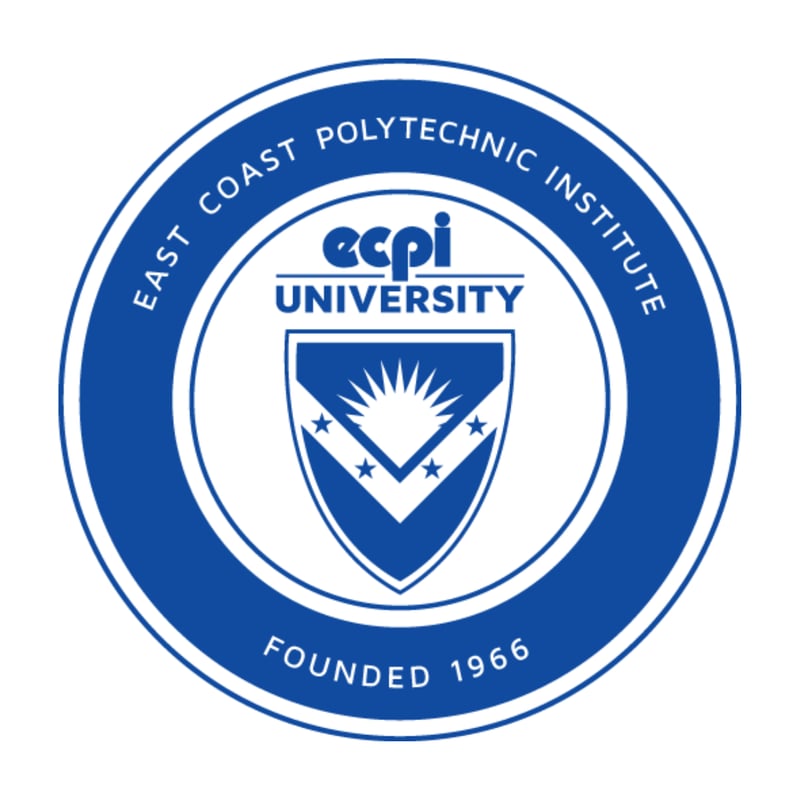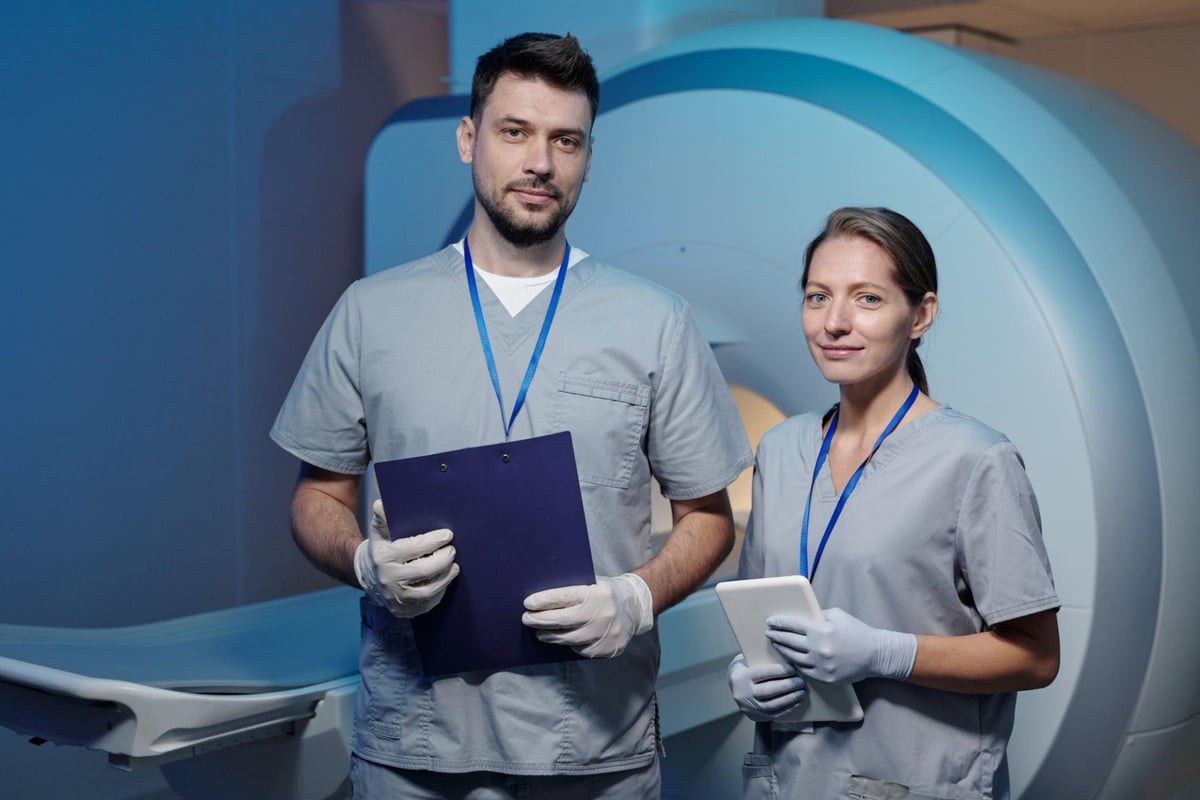Radiology Technician classes near me in Austin
In the Austin metro area, the average cost of a Radiology Technician class is $20000 and the average class length is approximately 56 weeks long
Healthcare classes near
Austin, TX 78701Online classes
Financial aid

Southern Careers Institute
Medical Billing and Coding Specialist
- Earn a certification in just 36 weeks with full-time study
- Train in medical insurance, coding, and computer applications

Southern Careers Institute - Austin Main Campus
Medical Billing and Coding Specialist
- Complete the program in just 36 weeks.
- Multiple certification opportunities.

Southern New Hampshire University
BA Psychology with concentration in Mental Health
- Complete your degree at your own pace
- 24/7 online accessibility
Programs not available on Dreambound
LEAP
Made in NY Post Production Training in NYC
- Combination of soft skills and technical training
- Career guidance and placement support for two years
No cost info
Chattanooga State Community College Online
Magnetic Resonance Imaging - Certificate
- Curriculum follows the ARRT content specifications.
- Get 16 hours MRI education.
Financial aid (may be available)

Gurnick Academy of Medical Arts - Online
A.S. in Magnetic Resonance Imaging (MRI)
- Earn your full-time online degree in 18 months with flexible scheduling
- Career support includes mock interviews, and job placement assistance
Financial aid (may be available)
Contemporary Health Career Institute
Radiology Safety Continuing Education Course
- Earn 3 Continuing Education Credits
- Course compliant with Pennsylvania regulations
$40 total
American Allied Health
Limited Licensed Radiology Technologist, CLLRT
- Satisfy employer & state regulations
- Get immediate proof of certification
$125 total

ECPI University, the School of Health Science, Medical Careers Institute - Newport News
Radiologic Sciences
- Accelerated Bachelor of Science in Radiologic Sciences program
- Flexible Schedule with Full or Part Time Available
No cost info
Pima Medical Institute - Denver Campus
Computed Tomography
- High-quality programs that are 100% online
- Flexible coursework is project-based
No cost info
Northland Community & Technical College
Radiologic Technology A.A.S.
- Integrates excellence in didactic instruction and clinical experiences
- Produces competent entry-level Radiologic Technologists
No cost info
Southeast Community College - Online Learning
Radiologic Technology certificate
Focus on the creative career opportunities in the scientific field of radiology. Our Radiologic Technology program allows you to combine basic scientific principles with the creativity of art by taking radiographic images to aid with diagnosis of illness and injuries.
You can choose to take our program via the Lincoln track or the Distance track. If you take the Lincoln track, you will perform your clinical in Lincoln with courses offered in person; if you take the Distance track you will perform your clinical at a pre-approved hospital outside Lincoln and take your courses online. Once you complete the program you will have the skills necessary to be successful and prepared to take the American Registry of Radiologic Technologist Exam and apply for state licensure where you choose to work.
No cost info
Rasmussen University - Online
Radiologic Technology Associate's Degree
In as few as 24 months, you could be ready to work as a radiologic technologist.1 With an Associate's degree in Radiologic Technology, gain proficiency in diagnostic imaging, physiology and radiation safety, and learn to confidently convey assured leadership with patients. With hands-on experience at clinical sites, on-campus labs, diverse clinical practicum settings and online coursework, you’ll be confident in your skills outside of the classroom and ready to start your career.
No cost info
Radiology Technician Classes Near Me in Austin
The city of Austin, Texas, is known for its thriving job market, and the field of radiology technology is no exception. With a growing population and a booming healthcare industry, the demand for skilled radiology technicians in Austin is on the rise. If you're considering a career in this field, you'll be pleased to know that there are several radiology technician schools in the area that can help you achieve your goals and earn a competitive radiology technician salary.

What is a Radiology Technician?
A radiology technician, also known as a radiologic technologist, is a healthcare professional who operates medical imaging equipment, such as X-rays, CT scans, and MRI machines, to help diagnose and treat various medical conditions. Radiology technicians play a crucial role in the healthcare team, as they are responsible for producing high-quality images that aid physicians in making accurate diagnoses.
Training Requirements
To become a radiology technician in the state of Texas, individuals must complete an accredited radiologic technology program, which typically takes two years to complete. These programs provide a combination of classroom instruction and hands-on clinical training, covering topics such as human anatomy, radiation physics, and patient care.
What's the Fastest Someone Can Become a Radiology Technician in Austin?
The fastest way to become a radiology technician in Austin is to enroll in an accelerated radiologic technology program. These programs are designed for individuals who already have a background in healthcare or a related field and are looking to transition into radiology. Accelerated programs can be completed in as little as 12-18 months, depending on the institution.
Radiology Technician Classes in Austin
There are several radiology technician classes available in Austin, each with its own unique features and requirements. Here are a few examples:
-
Austin Community College: The Radiologic Technology program at Austin Community College is a two-year associate's degree program that prepares students for entry-level positions as radiology technicians. The program includes both classroom instruction and clinical rotations at local healthcare facilities.
-
Texas State University: Texas State University offers a Bachelor of Science in Radiologic Science program, which takes four years to complete. This program provides a more comprehensive education, covering advanced imaging techniques and leadership skills.
-
St. David's School of Radiologic Technology: St. David's School of Radiologic Technology is a hospital-based program that offers a 24-month certificate program in radiologic technology. This program is designed to provide hands-on training in a clinical setting.
Each of these programs has its own admission requirements, curriculum, and tuition costs, so it's important for prospective students to research and compare their options to find the best fit for their needs and goals.
Exploring a Career in Radiology Technician Outside Austin
If you're aiming to pursue a career as a Radiology Technician but find yourself in a different state, remember, your goal is still within reach. You can explore opportunities to start your career as a Radiology Technician in places like Atlanta, Durham, Louisville/Jefferson County, Portland, Virginia Beach. If these locations don't work for you, Dreambound simplifies the journey to becoming a Radiology Technician no matter where you live. By enabling you to find and compare Radiology Technician classes with a quick zip code search, Dreambound empowers you to move forward confidently towards a rewarding career in healthcare, regardless of your current location.
Online and Free Options in Austin
While there are no fully online radiology technician programs available in Austin, some institutions do offer hybrid or blended learning options that combine online coursework with in-person clinical training. These programs can be a good option for students who need more flexibility in their schedules.
As for free options, there are currently no free radiology technician programs available in the Austin area. However, some students may be able to access financial aid, scholarships, or tuition reimbursement programs to help offset the cost of their education.
Certification Process
To work as a radiology technician in Texas, individuals must be licensed by the Texas Medical Board. The certification process typically involves passing the American Registry of Radiologic Technologists (ARRT) examination, which covers both theoretical and practical knowledge.
Job Environment in Austin
The job environment for radiology technicians in Austin is quite promising. The city's growing population and thriving healthcare industry have created a high demand for skilled radiology professionals. Some of the largest employers of radiology technicians in Austin include St. David's HealthCare, Seton Healthcare Family, and the University of Texas at Austin Dell Medical School.
Final Thoughts
If you're interested in becoming a radiology technician in Austin, there are several excellent educational opportunities available to you. Whether you choose to attend a community college, a university, or a hospital-based program, you'll be on your way to a rewarding career in the healthcare field. With the right training and certification, you can become a valuable member of the Austin healthcare community and earn a competitive radiology technician salary.
If you're aiming to pursue a career as a Phlebotomist but find yourself in a different state, remember, your goal is still within reach. You can explore opportunities to start your career as a Phlebotomist in places like Charleston, Dayton, Nashville, Salt Lake City, Tampa. If these locations don't work for you, Dreambound simplifies the journey to becoming a Phlebotomist no matter where you live. By enabling you to find and compare Phlebotomy classes with a quick zip code search, Dreambound empowers you to move forward confidently towards a rewarding career in healthcare, regardless of your current location.
FAQ
What is Dreambound?
Dreambound's platform has the largest number of options for students to find career & technical education. While we can't guarantee any career outcomes, our mission is to provide you with the information you need to find a program that helps you start your new career journey.
What programs do you offer?
Dreambound has over 70 programs across healthcare, technology, business, and industrial trades. This includes programs such as Medical Billing, Cybersecurity, and welding.
Do you offer financial aid?
Some of our schools offer financial aid for those who qualify. Many others offer payment plans, where you can pay the cost of class over time.
Is it possible to do online classes?
Yes, Dreambound offers many online programs. On Dreambound's search, you can filter by online, in-person, and hybrid (part online, part in-person).